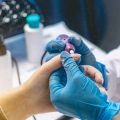Introduction to PRP and Mesotherapy: What UK Practitioners Want Men to Know
In recent years, the UK aesthetics landscape has witnessed a notable shift, with an increasing number of men seeking non-surgical solutions to enhance their appearance and confidence. Among the most talked-about treatments are Platelet-Rich Plasma (PRP) therapy and mesotherapy—procedures once considered niche, but now at the forefront of male aesthetic care. While both techniques have long been popular among women, leading UK practitioners are seeing a clear surge in interest from men who wish to address concerns such as hair thinning, skin quality, and signs of ageing without resorting to invasive surgery.
From Harley Street clinics to local practices across London, Manchester, and Edinburgh, experts emphasise that men’s expectations and priorities can differ significantly from those of female patients. There is often a focus on subtle, natural results that maintain a masculine appearance—whether it’s restoring hair density or achieving fresher-looking skin. Importantly, practitioners highlight the value of evidence-based information tailored to men’s unique needs and lifestyles. As awareness grows around PRP and mesotherapy in the UK, practitioners encourage men to seek professional advice, stressing that these treatments offer more than just cosmetic benefits—they can also help boost self-esteem and overall well-being.
2. Unique Considerations for Men: British Insights
When it comes to aesthetic procedures like PRP (Platelet-Rich Plasma) and mesotherapy, men in the UK present a distinct set of concerns and goals that differ from their female counterparts. Leading practitioners across Britain have observed an increasing openness among men to explore non-surgical options, but this is still influenced by cultural attitudes around masculinity and self-care. Below, we discuss the key male-specific considerations practitioners address, and how treatments are tailored accordingly.
Understanding Male Aesthetic Goals
British men often approach aesthetic treatments with clear objectives—most commonly hair restoration and subtle skin rejuvenation. Rather than seeking dramatic changes, many prefer results that appear natural and understated. Practitioners report that discretion is paramount; clients typically want enhancements that are noticeable only to themselves or close family, rather than overt transformations.
Key Concerns Addressed by UK Practitioners
| Concern | Typical Approach | Cultural Considerations |
|---|---|---|
| Hair Loss/Thinning | PRP applied to scalp, tailored mesotherapy blends | Hair density maintained without obvious signs of intervention |
| Skin Ageing (Lines & Texture) | Subtle mesotherapy for hydration and collagen boost | Avoidance of overdone look; preference for gradual improvement |
| Sun Damage & Redness | Targeted mesotherapy with antioxidants and vitamins | Solutions aligned with active lifestyles (e.g., golf, football) |
Cultural Attitudes and Practitioner Approaches
The UK’s reserved culture means many men hesitate to discuss cosmetic procedures openly. Practitioners note that creating a discreet, judgement-free environment is crucial. Consultations tend to focus on practical outcomes—such as maintaining a professional appearance or looking ‘well-rested’—rather than overt beauty enhancement. In tailoring treatments, experts adapt both technique and communication style, ensuring language remains straightforward and free from jargon.
This sensitivity extends to aftercare advice and follow-ups, which are framed around efficiency and privacy. Ultimately, the British approach combines technical expertise with an understanding of local attitudes, ensuring each man receives care suited not only to his skin or hair type, but also his lifestyle and personal comfort levels.

3. Treatment Techniques and Protocols: UK Standards
In the realm of aesthetic medicine, experienced UK practitioners adhere to a set of rigorous standards when administering Platelet-Rich Plasma (PRP) therapy and Mesotherapy for men. Their approach is shaped not only by clinical evidence but also by a strong culture of patient safety and regulatory compliance unique to the UK.
Preferred Techniques in PRP and Mesotherapy
UK clinicians typically favour a bespoke, patient-centred methodology. For PRP, the process begins with a thorough assessment followed by precise blood extraction, using CE-marked devices to ensure traceability and sterility. The plasma separation step is meticulously controlled, with practitioners opting for double-spin centrifugation to yield optimal platelet concentration. Injection techniques, such as micro-needling or direct infiltration into targeted areas—be it scalp for hair restoration or specific facial zones—are chosen based on individual needs and treatment goals.
Mesotherapy protocols often involve micro-injections of tailored cocktails containing vitamins, minerals, peptides, and sometimes hyaluronic acid. Practitioners in the UK select needle depth and composition after assessing skin thickness and desired outcomes, ensuring that each session remains minimally invasive yet effective. Topical anaesthetics are routinely offered to maximise comfort.
Safety Protocols: Best Practice in the UK
Patient safety forms the backbone of all procedures. Leading practitioners conduct comprehensive medical histories, including screening for contraindications such as bleeding disorders or active skin infections. Strict aseptic technique is observed throughout: single-use needles, medical-grade disinfectants, and appropriate PPE are standard. Post-procedure protocols include clear aftercare guidance and scheduled follow-ups to monitor outcomes and manage any adverse effects promptly.
Regulatory Guidelines
The UK’s regulatory landscape is robust. Treatments must comply with guidelines from the Care Quality Commission (CQC) and align with recommendations from professional bodies like the British Association of Cosmetic Nurses (BACN) and the General Medical Council (GMC). Consent processes are transparent and documented, while practitioners maintain up-to-date training in both technical skills and emergency management—such as dealing with rare allergic reactions or vascular events.
Continuous Professional Development
A commitment to ongoing education ensures that practitioners stay abreast of innovations while adhering to evolving standards. Peer review, participation in hands-on workshops, and regular audits are ingrained in UK practice culture, ultimately safeguarding both practitioner reputation and patient trust.
4. Real Patient Experiences and Results
When considering Platelet-Rich Plasma (PRP) and Mesotherapy, many British men are keen to understand not just the science, but also how these treatments play out in real life. To offer an authentic perspective, leading UK practitioners have shared case studies and testimonials from their own clinics. These stories reflect a range of expectations and highlight the diversity of results seen amongst male patients across the country.
Patient Case Studies: UK Men’s Journeys
Patient Profile |
Treatment Type |
Expectations |
Outcomes & Feedback |
|---|---|---|---|
| James, 42, London Office Professional |
PRP for Hair Loss | Wanted to halt hair thinning and improve density with minimal downtime. | Reported visible thickening after 3 sessions; satisfied with natural look, noted some scalp tenderness post-procedure but would recommend to friends. |
| Ravi, 35, Birmingham Fitness Enthusiast |
Mesotherapy for Skin Rejuvenation | Sought improved skin texture and reduced fine lines without looking “overdone.” | Saw brighter complexion within weeks; appreciated subtle results and quick recovery, though found micro-injections slightly uncomfortable. |
| Mark, 56, Edinburgh Retired Engineer |
Combined PRP & Mesotherapy (Face) | Hoped for refreshed appearance ahead of family event. | Friends commented on his “well-rested” look; valued practitioner’s honest advice about realistic outcomes and need for maintenance sessions. |
Themes from Patient Testimonials
UK practitioners emphasise that men often approach these treatments seeking discreet improvements—subtle boosts in confidence rather than dramatic changes. Across case studies, common themes include:
- Expectation Management: Most men value clear communication about what the procedures can realistically achieve.
- Comfort and Recovery: While discomfort is generally mild, it is a consideration for those new to aesthetic treatments.
- Cultural Sensitivity: Practitioners note that British men prefer understated results that blend seamlessly into everyday life.
- Sustained Outcomes: Patients who commit to recommended treatment plans typically report higher satisfaction rates.
A Practitioner’s Perspective
“We find our male clients appreciate a practical approach,” shares Dr. Sarah Jenkins, a Harley Street aesthetic doctor. “They want the facts, real-life examples, and honest conversations about what will work for them as individuals.”
5. Expert Advice: Choosing a UK Provider
When considering PRP and mesotherapy treatments, selecting the right practitioner is paramount—especially for men new to aesthetic procedures. UK experts unanimously recommend starting your search with clinics registered with reputable bodies such as the Care Quality Commission (CQC) or Save Face. These accreditations ensure that practitioners adhere to high clinical and safety standards commonly expected in the UK.
How to Find a Reputable Practitioner
Look for providers who are medically qualified—ideally GMC-registered doctors, nurses, or dentists with specific training in aesthetics. Many leading practitioners also belong to organisations like the British College of Aesthetic Medicine (BCAM). It’s wise to check online reviews and ask for before-and-after photos relevant to male patients, as men often have different treatment goals and responses compared to women.
Key Questions to Ask During Consultation
- What are your qualifications and experience with PRP/mesotherapy for men?
- Can you explain the benefits and risks specific to my skin type and concerns?
- What aftercare support do you provide post-treatment?
- How do you manage complications if they arise?
Don’t be shy about asking these questions—a reputable practitioner will welcome them. UK experts highlight the importance of a thorough face-to-face consultation before any procedure is booked.
Aftercare Considerations
Proper aftercare can make all the difference in results and recovery. Leading UK practitioners recommend avoiding strenuous exercise, alcohol, and sun exposure for at least 24-48 hours post-treatment. Men should also follow tailored skincare routines provided by their practitioner, which may include gentle cleansing and hydration. If there is swelling or bruising, cold compresses are typically advised—but always confirm specifics with your provider.
In summary, careful provider selection and diligent aftercare are key to achieving safe, effective outcomes with PRP and mesotherapy in the UK. Take time to research, ask questions, and commit to aftercare recommendations for best results.
6. Looking Ahead: Trends and Future Developments
As the UK aesthetic landscape evolves, practitioners are closely monitoring emerging trends and technological advancements that will shape the future of men’s treatments. According to leading experts, there is a growing demand for non-invasive procedures with minimal downtime, as British men increasingly seek natural-looking results without interrupting their busy routines. PRP and mesotherapy are gaining popularity not only for their efficacy but also for their compatibility with these preferences.
Emerging Technologies in Men’s Aesthetics
Innovations such as enhanced delivery systems for mesotherapy and next-generation PRP kits are making treatments more efficient and comfortable. Some clinics are trialling microneedling devices paired with PRP to improve absorption and stimulate collagen production further. Additionally, digital imaging and AI-based assessment tools are being introduced to better personalise treatment plans, ensuring outcomes align closely with patient expectations.
Changing Attitudes and Increased Awareness
A shift in cultural attitudes is another key trend. There is noticeably less stigma attached to men seeking aesthetic procedures in the UK, thanks in part to public figures openly discussing their experiences. Educational campaigns led by professional bodies are helping men make informed choices about safe, evidence-based treatments like PRP and mesotherapy.
The Future of Men’s Aesthetic Treatments
Looking forward, experts anticipate a continued emphasis on bespoke treatment protocols tailored specifically for male physiology and concerns such as hair thinning, skin texture, and age-related changes. The integration of regenerative medicine techniques is expected to expand, offering longer-lasting and more natural results. As regulations tighten and practitioner training becomes even more rigorous, patients can expect higher standards of care and safety across the UK aesthetics sector.
The consensus among top practitioners is clear: innovation, education, and patient-centred care will drive the next wave of men’s aesthetic treatments. For British men considering PRP or mesotherapy, these advances promise more options—and better outcomes—than ever before.


